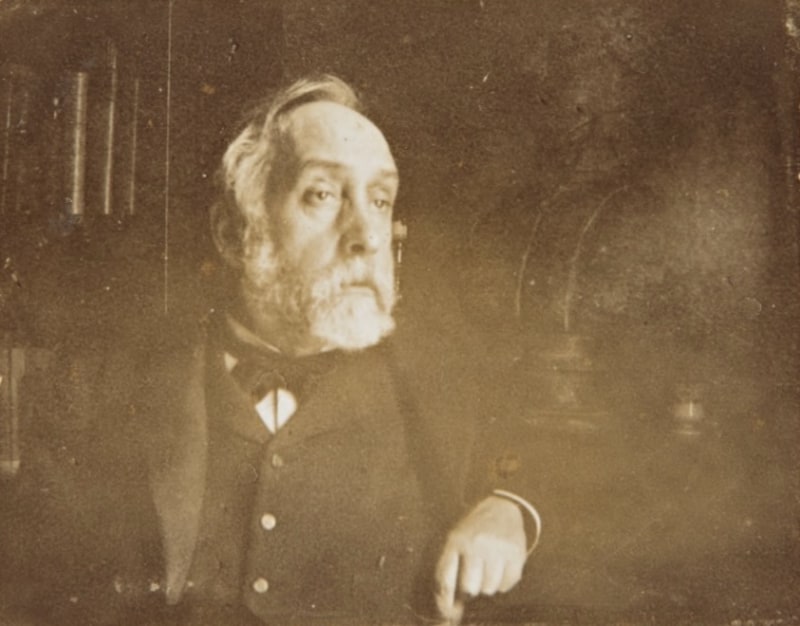One of the founders of the Impressionist movement, Edgar Degas was a prominent artist in the last half of the 19th century. Born to wealthy family, he began his schooling with a baccalaureate in literature in 1853. Due to the wishes of his father, who wanted him to go to law school, he enrolled at the University of Paris in 1853 to pursue a law degree, where he made little effort. Degas, who at age 18 had transformed one of the rooms is his house into a studio, and was a registered copyist at the Louvre by 1853, left law school after two years, and a year later traveled to Italy studying the art of the great masters.
His paintings were exhibited at the Paris Salon beginning in 1865, but they attracted little attention, and his subject matte slowly transitioned from history paintings to more contemporary subjects. In 1870, at the outbreak of the Franco-Prussian War, he enrolled as a member of the National Guard, but his eyesight, which was found defective during rifle training, was troublesome and so he could not serve. Three years later, in 1873, Degas' father died, revealing a massive amount of business debt held by his brother, Rene. Degas was forced to sell the family home and many family paintings in order to cover the debt, and for the first time, had to rely on the income from his paintings for survival. It was in 1874 that he began producing his most successful works.
Although he is considered one of the founders of Impressionism, and he indeed worked with impressionist artists, such as Edouard Manet and Pierre-Auguste Renoir, he rejected the label "Impressionist." He detested the scandals brought about by their Impressionist Exhibitions, and he mocked them for painting outdoors. His personal life was outwardly uneventful, due to his belief that an artist should live private lives of solitude. He thus lived a life of solitude, and eventually broke with all of his Jewish friends, due to his anti-Semitic beliefs and argumentative nature. He never married, opposed social change and technological innovations, always painted indoors, and ceased painting by 1912, at which he time he was nearly blind. He died wandering the streets of Paris in 1917.
His paintings were exhibited at the Paris Salon beginning in 1865, but they attracted little attention, and his subject matte slowly transitioned from history paintings to more contemporary subjects. In 1870, at the outbreak of the Franco-Prussian War, he enrolled as a member of the National Guard, but his eyesight, which was found defective during rifle training, was troublesome and so he could not serve. Three years later, in 1873, Degas' father died, revealing a massive amount of business debt held by his brother, Rene. Degas was forced to sell the family home and many family paintings in order to cover the debt, and for the first time, had to rely on the income from his paintings for survival. It was in 1874 that he began producing his most successful works.
Although he is considered one of the founders of Impressionism, and he indeed worked with impressionist artists, such as Edouard Manet and Pierre-Auguste Renoir, he rejected the label "Impressionist." He detested the scandals brought about by their Impressionist Exhibitions, and he mocked them for painting outdoors. His personal life was outwardly uneventful, due to his belief that an artist should live private lives of solitude. He thus lived a life of solitude, and eventually broke with all of his Jewish friends, due to his anti-Semitic beliefs and argumentative nature. He never married, opposed social change and technological innovations, always painted indoors, and ceased painting by 1912, at which he time he was nearly blind. He died wandering the streets of Paris in 1917.
